I love Biblical fiction and no one writes them better than Tosca Lee. Here’s a look at her August release, which I have selected for my book club later in the year, and also prompted my bookish question below.
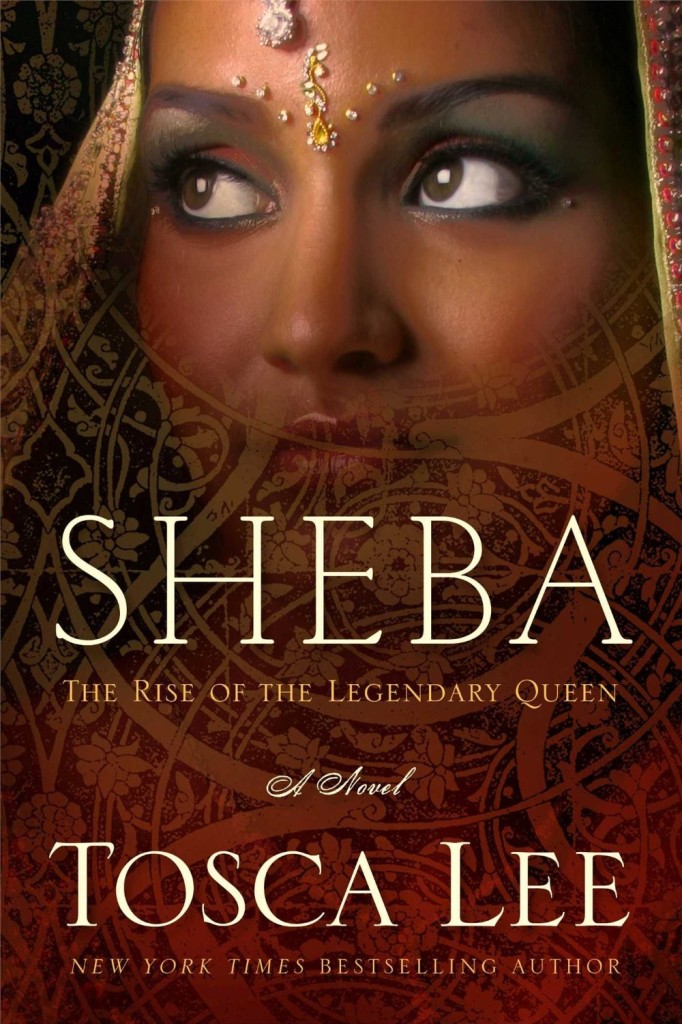 Sheba: The Rise of a Queenby Tosca Lee
Sheba: The Rise of a Queenby Tosca Lee
Her name is legend. Her story, the epic of nations. The Queen of Sheba. A powerful new novel of love, power, and the questions at the heart of existence by the author of the “brilliant” (Library Journal) and “masterful” (Publisher’s Weekly) Iscariot.
There is the story you know: A foreign queen, journeying north with a caravan of riches to pay tribute to a king favored by the One God. The tale of a queen conquered by king and god both, before returning to her own land laden with gifts.
That is the tale you were meant to believe.
Which means most of it is a lie.
The truth is far more than even the storytellers could conjure. The riches more priceless. The secrets more corrosive. The love and betrayal more passionate and devastating, both.
Across the Red Sea, the pillars of the great oval temple once bore my name: Bilqis, Daughter of the Moon. Here, to the west, the porticoes knew another: Makeda, Woman of Fire. To the Israelites, I was Queen of the spice lands, which they called Sheba.
In the tenth century BC, the new Queen of Sheba has inherited her father’s throne and all its riches at great personal cost. Her realm stretches west across the Red Sea into land wealthy in gold, frankincense, and spices. But now, new alliances to the North threaten the trade routes that are the lifeblood of her nation. Solomon, the brash new king of Israel famous for his wealth and wisdom, will not be denied the tribute of the world–or of Sheba’s queen. With tensions ready to erupt within her own borders and the future of her nation at stake, the one woman who can match wits with Solomon undertakes the journey of a lifetime in a daring bid to test and win the king. But neither ruler has anticipated the clash of agendas, gods, and passion that threatens to ignite–and ruin–them both. An explosive retelling of the legendary king and queen and the nations that shaped history.
I’m excited about this story – I love the richness of the cover and as I know Tosca is a meticulous researcher and pens beautiful prose, I have every confidence the story will be intriguing and powerful. Tosca wrestles with her stories, with integrity and an awareness of the power of the written word. She never fails to get me pondering faith matters even while I’m thoroughly engaged by the story. But not everyone agrees with me on the value of Biblical fiction, do they?
I know there are mixed views about retelling Biblical stories in the fiction format but I find that if they are well written and meticulously researched they challenge me to reread the Biblical text while opening my eyes to the nuances of the amazing experiences in the Bible that I might otherwise have missed. Yes, authors must extrapolate and include characteristics and circumstances that reach beyond the Biblical text but I find it makes me see the real life characters as more human than the perfect, superhuman caricatures we sometimes make them out to be. So, here’s my question:
Do you enjoy reading Biblical fiction? Why, or why not?

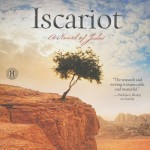
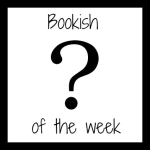
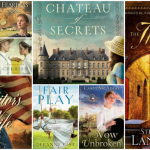

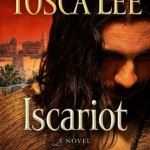
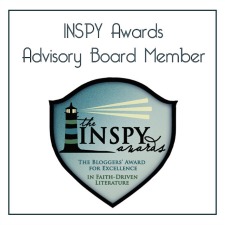




January 27, 2014 at 11:27 pm
I have found Biblical fiction to be a mixed bag – some great, some not so much. I usually read only those authors that have proven to write well-researched novels that follow faithfully the scriptures. That doesn’t mean the books can’t contain some what ifs. Favorites from last year were Iscariot by Tosca Lee, Return to Me by Lynn Austin and I, Saul by Jerry Jenkins. If a book makes me want to go deeper into the scriptures, I count it as a winner. Thanks for your questions each week. Love them!
January 28, 2014 at 12:29 pm
Beckie B. » Thanks Beckie – I love reading your responses, always!
If a book makes me want to go deeper into the scriptures, I count it as a winner. I couldn’t agree more!
January 28, 2014 at 4:23 am
I enjoy biblical fiction for the most part. My favorite is “Dreamsers” by Anglea Hunt. Her research on Egypt and Joseph was astounding. The second in this trilogy is “Brothers,” which I liked. The last of the trilogy is “Journey” and I did not like her takes on Ephraim and Manasseh, but it did get me to thinking about the biblical account which is always a plus. My biggest problem with biblical fiction is that everyone writes on the same few women. In my opinion, for the genre to grow other lesser known biblical people should be written about, or even better, it should be treated like historical fiction in that the main characters are not the real biblical people. The story should be set during Bible times and have the real people of the Scriptures be the secondary characters. The main characters could be entirely fictional. The author could then recommend the scriptures that serve as the backdrop for the reader to delve into. I would love to see stories set during the intrigue of the courts of the kings and queens of Kings and Chronicles.
January 28, 2014 at 12:28 pm
Aaron » I loved Angela’s trilogy, too, Aaron. Have you read Francine’s Biblical novellas? My favourite was Tamar – really made me revisit that story and think just what it meant. I agree there are stories that get the treatment, over and over again. Ruth, Esther, and co, for example. Ginger Garrett is another favourite of mine – her books are excellent. Have you read Cliff Graham’s novels about David and his mighty men? I liked the grittiness of those stories. Lynn Austin’s Chronicles of the Kings are well worth the read and tell the story of King Hezekiah and King Manassah. She also has a new series, the Restoration Chronicles, based on the books of Ezra and Nehemiah.
January 29, 2014 at 1:56 pm
I haven’t read Francine’s biblical yet. I have read her “Mark of the Lion” series which I love. I need to try Cliff’s. My pastor also recommended them to me. And I have geared my reading of Lynn Austin toward her historicals. Must add her biblical fiction to my TBR pile. Thanks for the suggestions, Rel.
January 28, 2014 at 4:24 am
I should edit before sending. The book I love is “Dreamers” by Angela Hunt.
January 28, 2014 at 4:56 am
I do from time to time. Like Pearl in the Sand.
January 28, 2014 at 12:21 pm
Juju at Tales of Whimsy… » Loved that story, Juju. So beautifully written from both the Biblical and relational angles.
January 28, 2014 at 7:28 am
I think if a book takes you back to the Bible that is a really good thing. For me, Biblical fiction almost always does that – I want to read the original text again to answer some of the questions that inevitably arise from those necessary fictional extrapolations.
I love that Biblical fiction puts a more human, emotional face on the stories that are often delivered in a very brief and factual manner. Tosca’s books have been the pinnacle of this genre for me so I am excited you’ve chosen another one for book club this year. Can’t wait!!!!
January 28, 2014 at 12:20 pm
Tracy » Snap! Totally agree, Trac 🙂 Roll on, book club, right?! Schedule coming your way shortly…and books, somehow!
January 28, 2014 at 9:45 am
I enjoy biblical fiction. I read Lois Henderson years and years ago, found Francine Rivers Mark of the Lion series about 10 years ago and have read all her books since. I enjoy Tosca Lee also. I have read some books that were not great and I don’t read those authors anymore. I like to get a different perspective of biblical times. The Bible is an amazing book and I enjoy reading stories from a characters perspective like Eve in Tosca Lee’s “Havah”. I appreciate authors who do extensive research and visit the sites of the biblical events.
January 28, 2014 at 12:18 pm
Lisa » Great comments, Lisa. Francine’s books were excellent, weren’t they? I’ve also found Tessa Afshar and Mesu Andrews’ books to be very intriguing and challenging.
January 28, 2014 at 11:56 pm
My favorite will always be Lloyd C. Douglas’ The Robe. Though the style may be a bit dated for modern audiences, for me it is the gold standard. I also love Tessa’s Pearl in the Sand and Mesu’s Love in A Broken Vessel. They both add so much to the story whole remaining true to the Scriptures.
February 3, 2014 at 11:18 am
Carole Towriss » Love that you stopped by, Carole – thank you! Tessa’s story is so moving, isn’t it? Hope your writing is going well 🙂
January 29, 2014 at 12:48 am
I have long been a fan of Biblical fiction – like Carole one of my favorites is The Robe and also The Silver Chalice (Thomas B. Costtain). I love how Biblical fiction draws me into the setting – the time and place – and leads me to search the Scriptures deeper. I love Mesu Andrews novels for that very reason. I haven’t read Tosca’s yet, but I’m thinking I will!
February 3, 2014 at 11:17 am
Rebecca DeMarino » It is so worth giving Tosca’s Biblical stories a chance. They are fabulous – I love Mesu’s as well, Rebecca. Thanks for sharing 🙂
January 30, 2014 at 8:30 am
I LOVE biblical novels–for the reason you stated, Rel. If written well, it stirs reader curiosity and sends them back to Scripture for a PERSONAL revelation of God’s Word.
I’m so excited about Tosca’s version of Sheba’s story. Her lyrical writing is unlike any other, and her interpretation of Eve in Havah was AMAZING! Because Tosca wrestles so thoroughly with her characters, her plot, her research, we–the readers–experience that wrestling match in our souls as the story unfolds. She’s a biblical-novel author who holds my trust. I haven’t found any of her fiction in direct or implied conflict with God’s Word, and her biblical FACTS have been impeccable. Trust must be earned by a biblical novelist–and then carefully maintained. Tosca–and others mentioned above–have done that. My personal favorite is STILL Francine Rivers’ Mark of the Lion series! 😉
February 3, 2014 at 11:16 am
Mesu Andrews » Oh, Mesu – you’re a treasure for stopping by! Thanks for your insightful comments – I adored Havah, too. I think you did a brilliant job of both Job and Hosea’s stories. Both had me going back to the Biblical text and reading it with fresh eyes – love that!